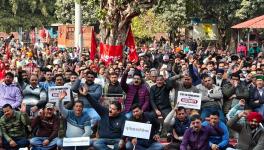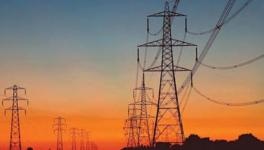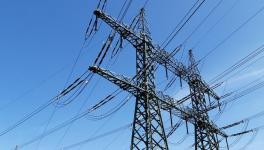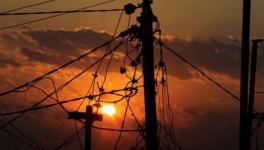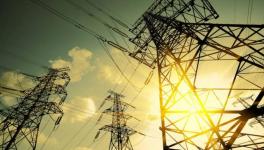Protests against Discom Privatisation Rage Across India; UP Postpones Proposal
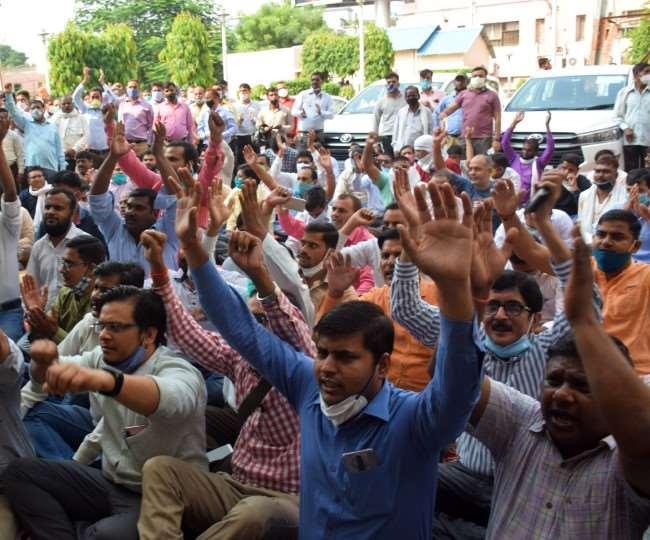
The Uttar Pradesh government on Tuesday decided to postpone its plan to privatise power distribution companies following massive protests by employees. About 15 lakh electricity department employees including junior engineers, sub-divisional officers, executive engineers and superintending engineers have been on an indefinite strike since Monday to oppose the proposal to privatise the power distribution company Purvanchal Vidyut Vitran Nigam Limited (PuVVNL).
As per an agreement signed on Monday after a meeting held by state Power Minister Shrikant Sharma and Finance Minister Suresh Khanna, the Uttar Pradesh government has agreed to take back the privatisation proposal for PuVVNL
An agreement was reached between Sharma and the Power Employees Sangharsh Committee. According to the agreement, it has been decided to postpone the privatisation of the Purvanchal power utility till March next year. Following this, the Power Employees Sangharsh Committee had announced the withdrawal of the movement. However, Uttar Pradesh Power Corp Ltd chairman, Arvind Kumar refused to sign the agreement, leading to the discom employees continuing with their protests.
Read more: UP: State Power Employees Protest Against Privatisation of PuVVNL
There are five power distribution companies or discoms in UP and of these, only the Meerut-based Paschimanchal Vidyut Vitran Nigam and Kanpur Electricity Supply Company have been profitable. But the remaining three – Dakshinchal, Madhyamachal and Purvanchal – have been suffering losses.
“When the Uttar Pradesh State Electricity Council (UPSEB) was disbanded in 2000, the annual loss was just Rs 77 crore. But due to mismanagement and policies of the government after its dissolution, this deficit has now ballooned to more than Rs 95,000 crore. Similarly, experiments with privatisation in Greater Noida and the franchisee model in Agra have also proved to be a complete failure. The question is why is the cost of these failed experiments being imposed on Purvanchal Vidyut Vitran Nigam,” chairman of All India Power Engineers Federation (AIPEF), Shailendra Dubey told NewsClick earlier.
The central government has recently floated a draft standard bidding document for privatisation of state-owned discoms. The Electricity (Amendment) Bill, 2020, by the central government seeks to amend various provisions in the Electricity Act, 2003. Like in UP, electricity employees in various parts of the country demonstrated on Monday against the privatsation move. Though the power sector employees across the country have boycotted work only for a day on Monday, they warned that if the government does not take back its decision, the boycott would be extended for an indefinite period.
The district convener of Vidhyut Karamchari Sanyukt Sangharsh SamitiAvdhesh Kumar told PTI on Sunday that the central government is bent upon privatising the power sector. The protest would be held from morning to evening on Monday and would continue till the demand is not fulfilled.
"The privatisation of the power sector remained unsuccessful in Orissa, Delhi, Aurangabad, Nagpur, Jalgaon, Ujjain, Gwalior, Bhagalpur, Gaya and Muzaffarpur including other places of the country. Privatisation is against the masses because electricity would become costlier. Only business houses would be benefitted. Almost all associations of engineers would participate in the protest," Kumar said.
Besides UP, protests are going on across the country under the banner of National Coordination Committee of Electricity Employees and Engineers (NCCOEEE) against the electricity privatisation efforts.
In Telangana, tens of thousands of power sector employees participated in protest meetings and demonstrations. The protesting employees warned that power sector workers will be forced to resort to direct action if the central government tries to rush the Electricity (Amendment) Bill in the ensuing session of the Parliament.
During a virtual conference of state power ministers held on July 3, as many as 11 states and one union territory have strongly opposed several clauses of the draft Electricity (Amendment) Bill, 2020. The opposing states are Kerala, Telangana, Tamil Nadu, Andhra Pradesh, West Bengal, Jharkhand, Bihar, Maharashtra, Chhattisgarh, Rajasthan and Punjab, along with union territory Puducherry.
Employees of the Mangalore Electricity Supply Company (MESCOM) also staged a protest on Monday against the Union government’s move to privatise discoms. Addressing the protestors, MESCOM engineers association’s vice president Manjappa said the move will result in losses to the state exchequer and was against the interests of consumers. He said the privatisation will mostly affect the farmers and Below Poverty Line (BPL) card holders. Concessions and subsidies enjoyed by industrial units and consumers will also come to an end with the decision, he underlined.
Read more: AIPEF Writes to PM Modi; Urges Not to Rush Electricity (Amendment) Bill
(With inputs from PTI)
Get the latest reports & analysis with people's perspective on Protests, movements & deep analytical videos, discussions of the current affairs in your Telegram app. Subscribe to NewsClick's Telegram channel & get Real-Time updates on stories, as they get published on our website.










